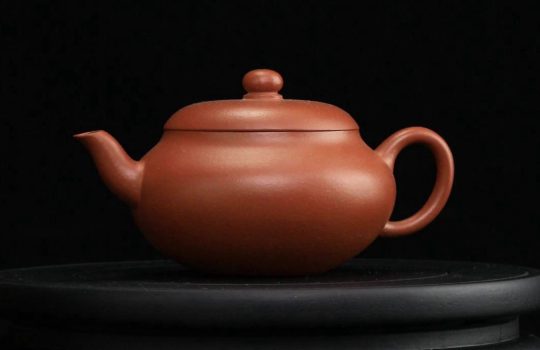1. Refreshes the mind and body, promotes urination and relieves fatigue
When you are bent over your desk, feeling dizzy and exhausted, drinking a cup of strong tea will instantly refresh your mind and alleviate fatigue. When you have been travelling long distances, sweating profusely, and feeling utterly exhausted, sipping a pot of fragrant tea will dispel the heat and leave you feeling refreshed both mentally and physically. This is the effect of tea in invigorating the mind, enhancing thinking, and alleviating fatigue. The caffeine in tea stimulates the central nervous system, transforming the sluggish state of the cerebral cortex into an excited state, thereby clarifying the mind and enhancing intelligence. Additionally, during metabolic processes, brain cells and muscles produce a significant amount of lactic acid, which can reduce brain cell activity and cognitive function. The caffeine in tea stimulates the kidneys, promoting the rapid excretion of urine and reducing the retention of harmful substances in the kidneys. It also helps to quickly eliminate lactic acid from the body, aiding in the rapid recovery from fatigue.
2. Lowering lipids, aiding digestion, and promoting weight loss
As early as the Tang Dynasty, the ‘Ben Cao Shi Yi’ recorded the effects of tea, stating that ‘long-term consumption makes one slim and reduces body fat.’ This is because the flavonoids, aromatic substances, and alkaloids in tea can lower cholesterol levels and blood lipid concentrations, exerting a strong fat-breaking effect, thereby achieving lipid-lowering and weight-loss benefits. Additionally, the caffeine in tea increases gastric juice secretion, promoting digestion. This is why there is a saying in China’s border regions among ethnic minorities that ‘one cannot go a day without tea.’
3. Anti-cancer and anti-radiation
The polyphenols in tea have the ability to block the synthesis of carcinogenic nitrosamines in the body, directly kill cancer cells, and enhance the body’s immune function. According to relevant data, the catechin compounds in tea have preventive and auxiliary therapeutic effects on various cancers such as stomach cancer and colorectal cancer; while the vitamins in tea can also block the synthesis of carcinogenic nitrosamines.
In human metabolic processes, harmful free radicals are constantly produced. Under the influence of external radiation, free radical metabolism becomes imbalanced, leading to excessive production and accumulation of free radicals, which weaken and damage cellular functions, disrupt normal metabolic processes, and cause various diseases. The polyphenols and oxidised substances in tea can absorb radioactive substances and reduce their harmful effects on the body. Additionally, tea polyphenols can block ultraviolet rays and eliminate free radicals induced by ultraviolet rays, thereby protecting the normal function of melanocytes, inhibiting melanin formation, and playing a protective role for the body. Therefore, tea polyphenols are referred to as natural ultraviolet filters.
4. Dental protection and eye health
Tea leaves contain a high fluoride content, with 10–15 milligrams of fluoride per 100 grams of dry tea, and 80% of this is water-soluble. If 10 grams of tea leaves are consumed daily, approximately 1–1.5 milligrams of water-soluble fluoride can be absorbed. Additionally, tea is an alkaline beverage that can inhibit calcium loss in the body, which is beneficial for preventing cavities, protecting teeth, and strengthening teeth.
Regular tea consumption or rinsing the mouth with tea water is highly beneficial for preventing cavities. Furthermore, tea leaves contain a large amount of carotenoids, which have a vision-enhancing effect and can help prevent the onset of cataracts; vitamin B1 in tea is an important substance for maintaining the optic nerve, helping to prevent blurred vision and dry eyes caused by optic neuritis; vitamin B2 is effective in preventing and treating keratitis; vitamin C is an important nutrient for the human eye lens, helping to reduce lens opacity. Therefore, regularly drinking tea has a positive effect on reducing eye diseases, protecting eye health, and improving vision.
5. Promoting longevity and delaying ageing
Modern medical research indicates that human ageing is directly related to the excessive oxidation of unsaturated fatty acids in the body, and the use of effective antioxidants can delay the ageing process and enhance vitality. The polyphenolic compounds, caffeine, and vitamins C and E in tea can block lipid peroxidation reactions and eliminate free radicals, thereby delaying bodily ageing.
6. Antibacterial and antiviral effects
Tea polyphenols have strong astringent properties and exhibit significant inhibitory and bactericidal effects on pathogenic bacteria and viruses, aiding in the suppression and resistance to viral infections. They also demonstrate notable efficacy in reducing inflammation and diarrhoea. Medical communities in China, the United States, and Japan have reported that tea extracts can prevent influenza virus infection, and in China, many medical institutions have already used tea-based formulations to treat acute and chronic dysentery, amoebic dysentery, and influenza, with a cure rate of approximately 90%.
7. Promoting saliva production and quenching thirst
People working in high-temperature environments experience increased thermal load on the body, accelerated metabolism, and increased energy consumption, leading to fatigue. The body primarily relies on sweating for heat dissipation. If excessive sweating or metabolic dysfunction occurs, it can disrupt water-electrolyte balance. Drinking tea can first replenish the body’s lost fluids, regulate metabolism, and maintain fluid balance in organs such as the heart, gastrointestinal tract, liver, and kidneys. Tea is rich in various vitamins, minerals, trace elements, amino acids, and other active substances, which can replenish nutrients lost through sweating and maintain the physiological functions required for high metabolic states.
8. Enhancing Nutrition and Strengthening Physical Health
Tea leaves contain hundreds of essential nutrients for the human body, such as proteins, tea polyphenols, alkaloids, amino acids, carbohydrates, minerals, vitamins, pigments, fats, and aromatic substances. These components not only give tea its colour, aroma, and taste but also provide the human body with abundant nutrients, offering significant health benefits. In particular, the various vitamins and minerals in tea are essential nutrients for the human body. Vitamin C is a substance the human body cannot synthesise on its own and is a necessary component for the formation of connective tissue. It helps maintain the normal physiological functions of teeth, bones, blood vessels, and muscles, and promotes the healing of wounds. If the human body lacks vitamin C, it can reduce the probability of cerebral haemorrhage; vitamin B1 helps blood cell growth; a deficiency in vitamin C can lead to scurvy, bleeding gums, fragile capillaries, and subcutaneous bleeding; vitamins P and C, along with vitamin B2, have certain effects in preventing and treating keratitis and pneumonia. Therefore, regular tea consumption not only supplements nutrition but also strengthens the body.
9. Preventing cardiovascular and cerebrovascular diseases
Clinical trials have shown that tea can reduce blood viscosity and hypercoagulability, prevent blood clot formation, and enhance the elasticity of blood vessel walls, thereby having a certain preventive and therapeutic effect on cardiovascular diseases. This is because the polyphenols in tea, especially catechins and their oxidation products such as theaflavins, help inhibit the development of plaque, reduce fibrinogen levels that increase blood viscosity, and clarify blood clotting, thereby inhibiting atherosclerosis.




